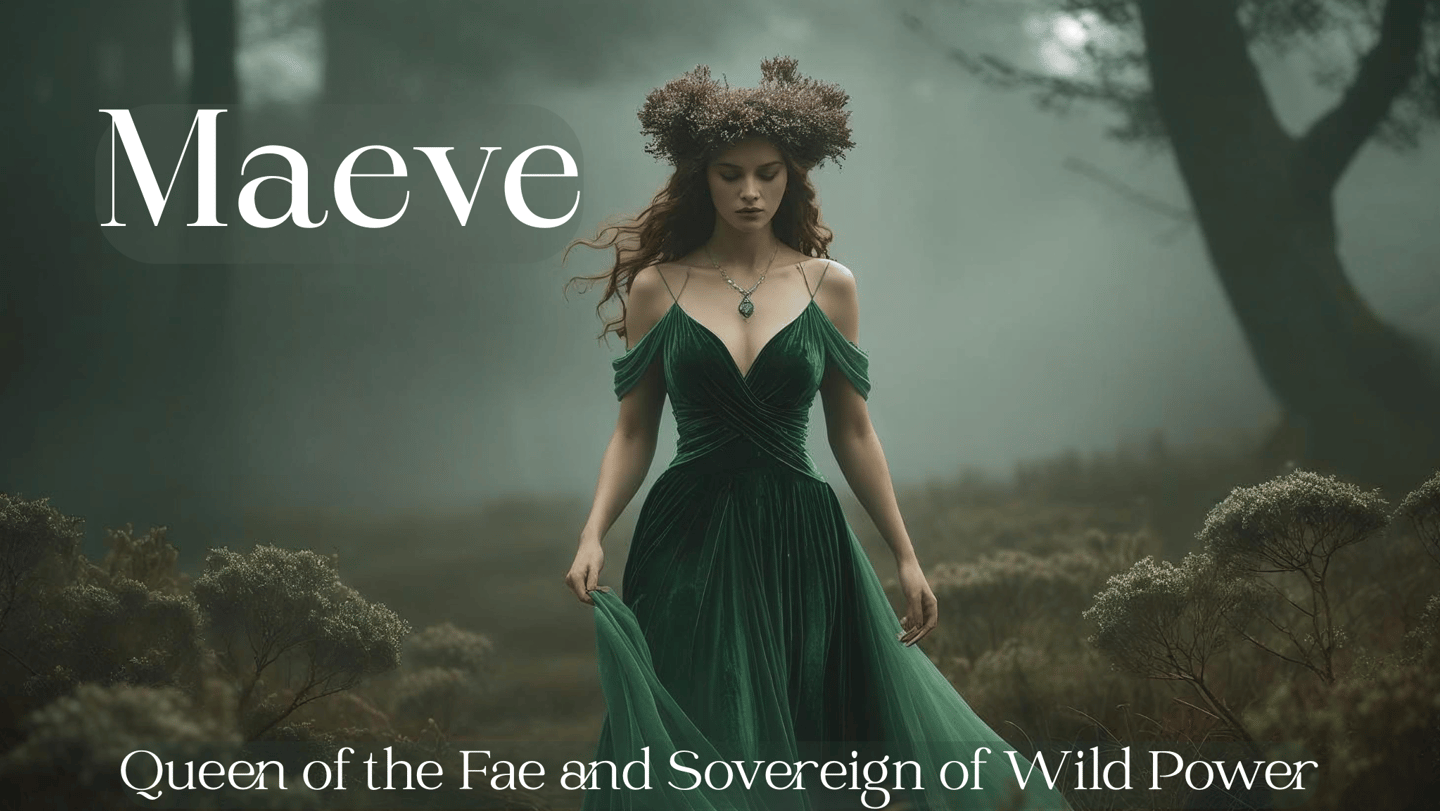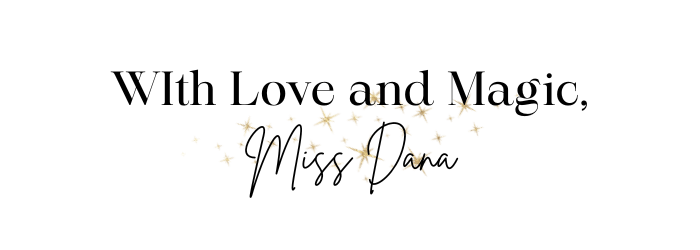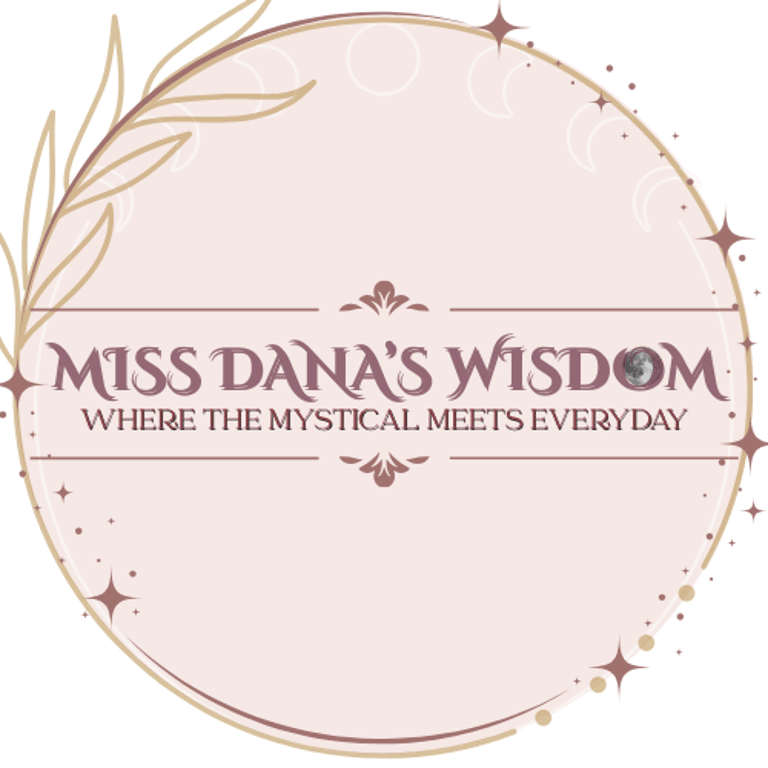Who Is Maeve?
She moves through the mists in velvet green, crowned with dew and heather, her laughter echoing like chimes through the forest glade. Maeve—also spelled Medb or Meabh—is not your average faerie queen. She’s fierce, intoxicating, untamed, and very much in charge.
Maeve is both goddess and queen, ruler of Connacht in Irish mythology and high sovereign of the Fae. She rides a white mare through twilight realms and whispers to flowers, warriors, and witches alike. Some say she brings madness. Others say she brings desire. But all who meet her agree—Maeve does not ask for power. She is power.
Let’s step beyond the veil and meet the Queen of Sovereignty, sensuality, and spellbinding magick.


Maeve is an ancient Irish goddess of war, fertility, and kingship—though in the later epics, she appears as a powerful mortal queen in The Táin Bó Cúailnge (The Cattle Raid of Cooley). Yet Maeve is no ordinary queen. She is the living embodiment of sovereignty, the sacred feminine force that chooses—and anoints—worthy kings.
She’s wild. She’s cunning. She’s radiant with allure and sharp as a hawthorn thorn.
In Faerie lore, Maeve is often remembered as a queen of the Sidhe (pronounced “shee”), the fae folk who dwell in hollow hills and moonlit woods. Under her rule, dreams swirl like mist and reality dances to the rhythm of enchantment.
The Legend of Maeve:
Queen by Her Own Right
Once, in the days when magic walked openly and kings were chosen by the land itself, there lived a woman of dazzling power and beauty. Maeve, daughter of the High King of Ireland, refused to be anyone’s possession. She would not be a wife for alliance, nor a pawn for peace. Instead, she demanded her own queendom.
And she got it.
The land of Connacht bent to her will—not through conquest, but through charisma, cunning, and divine right. She chose her lovers, took many husbands, and made it clear: any man who wished to rule beside her must be equal in generosity, wealth, and spirit. None could outshine her, for she was the land.
In the great Irish epic, The Cattle Raid of Cooley, Maeve wages war over a magnificent bull, determined to match her husband’s wealth. But beneath the surface of cattle and combat, the story tells of a sovereignty goddess demanding balance, of a woman who would not be diminished.
And in the realm of the fae, it is said Maeve still rules from her moonlit court, draped in silver cobwebs and wild roses, her voice calling to dreamers and mystics who wander too far into twilight.
Maeve’s Symbols and Sacred Energies
Maeve's energy is lush, potent, and primal. She reminds us to claim our worth and rule from within.
Her symbols include:
White Mare: Power, faerie travel, female sovereignty
Hawthorn Blossom: Faerie magick, sensuality, protection
Goblet of Mead: Sacred kingship, abundance, sacred intoxication
Full Moon: Feminine power, glamour, mystery
Crow or Raven: War wisdom and omens from the Otherworld
Maeve walks the line between pleasure and power, and reminds us that sacred feminine energy is not passive—it is bold, stormy, and radiant.
Maeve’s Wisdom in Everyday Magick
Maeve teaches us that sensuality is sacred, and boundaries are divine. She reminds us not to shrink or dim ourselves for others' comfort.
Her whispers might reach you when:
You hesitate to ask for what you’re worth
You struggle to feel confident in your own skin
You’ve forgotten the pleasure of being alive
When Maeve walks beside you, you remember who you are—a sovereign soul, not to be owned, but honored.
Queen of Fae, Queen of You
Maeve doesn’t just rule a kingdom of moss and mushrooms. She rules the wild heart within. She beckons you to own your voice, to choose pleasure without apology, and to walk barefoot through your queendom like you were born to.
Because you were.
So when the moon is high and the honeysuckle sweetens the night air, listen. The Queen of the Fae might just be calling your name.
"Rise," she says,
"and take your crown."


